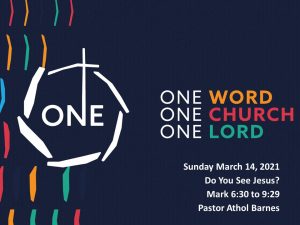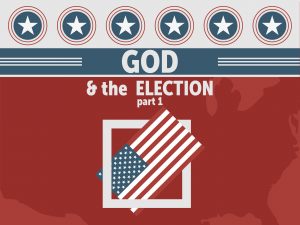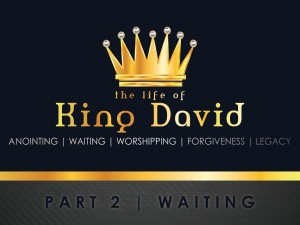
Mark 8:1-10
Do you ever look at something and not see what’s really there?
There is a phenomenon in the world of art called a stereogram. You can often find them in museums, shopping malls, or art stores. These are three-dimensional pictures hidden inside a two-dimensional picture with a repeating pattern. But a lot of people, like me, cannot see the hidden image.
Not seeing what’s there not only happens in the art world, it also happens in the spiritual world. It happens with Jesus. At first glance when we look at Jesus, we don’t see all that’s there. And if we don’t look long enough, if we don’t look at him in a different way, we’ll have a limited view that will prevent us from seeing how incredible, how powerful, how compassionate, how glorious he is, and will miss out on experiencing the life he offers us. What image do you have of Jesus?
As we skim through Marks Gospel, we are looking at Mark 6:30 to 9:32.Up to this point in the ministry of Jesus, he’s been extremely popular. The things he’s said and done have impacted the entire region. However, this is about to change as he begins to reveal his true mission, one that will culminate on a cruel Roman cross.
Throughout this Gospel, you may have noticed that Jesus uses every moment to reveal himself more fully to his disciples, because like us, they don’t always see things clearly.
One of these moments is found in Mark 8:1-10 as Jesus miraculously feeds four-thousand people with a few loaves and fish.
Jesus isn’t just a powerful teacher and miracle worker; he is a shepherd. He cares about people. His emotion moves him to action, and he wants to feed the people. Jesus has the crowd sit down and blesses the food as he begins to perform a miracle of multiplication that fed the multitude. The disciples saw a crowd that needed to be sent away because the task was impossible. Jesus saw people who needed to be fed and an opportunity to teach.
We might see someone who has made a wreck of their lives and someone who takes up our time, when Jesus sees them as a person who deserves a second chance. Jesus sees the person whom he created in the image of God.
Later, when Jesus is alone with his disciples, he knows that they are struggling to grasp who he really is (Mark 8:18). They were looking at him with the wrong expectation and focus.
We aren’t much different. No matter how many times the Lord has answered our prayers in the past, we still struggle to grasp his power and trust him fully in the present. When we are going through various trials, we need Jesus to help us to see him, see him for who he really is.
In Mark 8:27-30, Jesus reveals who he really is. Jesus wanted his disciples to see his true identity. Jesus posed this question, “Who do people say that I am?” (Mark 8:27)
This is the essential question that we all must answer. What image do you have of Jesus?
If we’re unclear about Jesus, if we have a view of him that comes from our culture, books, or movies, then we could be going in a direction that leads us away from God.
Peter answered with a clear declaration of Jesus’ true identity. “You are the Christ.” (Mark 8:29b). Jesus affirms Peter’s declaration but instructs them not to tell anyone. But then he begins to tell them about the suffering he is about to undergo (Mark 8:31-38). This idea of suffering and death was not the picture they had of their messiah.
Peter boldly takes Jesus aside and begins to rebuke him, getting Jesus back in line with Peter’s vision. But Jesus seizes the moment and in the presence of all the disciples, rebukes Peter (Mark 8:33). Satan didn’t want Jesus to go to the cross and he tried to use a friend of Jesus to derail his mission plan. Satan has, and always will try to obscure and lie about the true identity of Jesus. He doesn’t want us to see Jesus for who he really is.
Satan is okay with us believing that Jesus was a good man, a moral teacher, a prophet, or a miracle worker. But he is more! He is the Messiah, the Christ, the Son of the living God who came to seek and save the lost, to set people free. Jesus suffered and died to pay for our sins and rose from the grave to authenticate that his death was a sufficient payment. And now he is alive and inviting whoever will see him for who he is, to accept his offer of eternal life!
Ever since the time of Jesus, men have argued about who this man named Jesus from Galilee really was. The Pharisees and Sadducees were very curious about Jesus and often followed him around to catch him in a lie, or they simply rejected him. Two thousand years later, many people continue to trivialize the life and teaching of Jesus. Some will even go as far as calling Jesus a great moral teacher but not the Lord over all creation.
Jesus Christ was the most influential person to ever walk this planet! He changed the timeline of history forever.
Colossians 3:4 says, “When Christ who is your life appears, then you also will appear with him in glory.” Is he your life? Or an add on?
The Bible is clear that the only way to avoid spending an eternity in Hell is through a personal relationship with this Jesus Christ. And that happens by making him Lord of your life. We can never make a true decision about Jesus by taking a poll of what other people think. You need to encounter him and see him in a personal way.
What is your image of Jesus? What obstacle is keeping you from seeing Jesus clearly?







